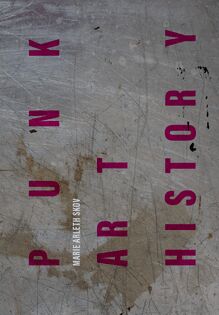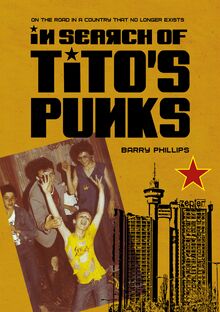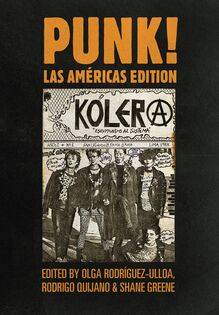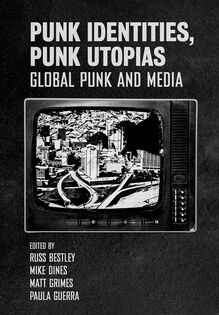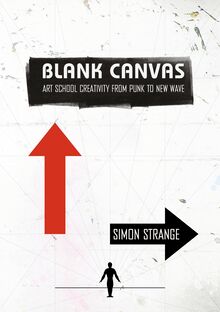-
 Univers
Univers
-
 Ebooks
Ebooks
-
 Livres audio
Livres audio
-
 Presse
Presse
-
 Podcasts
Podcasts
-
 BD
BD
-
 Documents
Documents
-
- Cours
- Révisions
- Ressources pédagogiques
- Sciences de l’éducation
- Manuels scolaires
- Langues
- Travaux de classe
- Annales de BEP
- Etudes supérieures
- Maternelle et primaire
- Fiches de lecture
- Orientation scolaire
- Méthodologie
- Corrigés de devoir
- Annales d’examens et concours
- Annales du bac
- Annales du brevet
- Rapports de stage
La lecture à portée de main
Vous pourrez modifier la taille du texte de cet ouvrage
Découvre YouScribe en t'inscrivant gratuitement
Je m'inscrisDécouvre YouScribe en t'inscrivant gratuitement
Je m'inscrisEn savoir plus
Vous pourrez modifier la taille du texte de cet ouvrage
En savoir plus

Description
Forty years after its inception, punk has gone global. The founding scenes in the United Kingdom and United States now have counterparts all around the world. Most, if not all, cities on the planet now have some variation of punk existing in their respective undergrounds, and long-standing scenes can be found in China, Japan, India, Africa, Southeast Asia and the Middle East. Each scene, rather than adopting traditional interpretations of the punk filter, reflects national, regional and local identities.
The first offering in Intellect’s new Global Punk series, The Punk Reader: Research Transmissions from the Local and the Global is the first edited volume to explore and critically interrogate punk culture in relation to contemporary, radicalized globalization. Documenting disparate international punk scenes, including Mexico, China, Malaysia and Iran, The Punk Reader is a long-overdue addition to punk studies and a valuable resource for readers seeking to know more about the global influence of punk beyond the 1970s.
Introduction
The Punk Narrative Turned Upside Down: Research Transmissions from the Local to the Global
Russ Bestley, Mike Dines, Alastair 'Gords' Gordon & Paula Guerra
Chapter 1
Sell-out Bastards! Case-study Accounts of the Dilemmas of Authenticity in the UK/US Punk 1984-2001 and Beyond
Alastair 'Gords' Gordon
Chapter 2
'Nothing Like the Rest of Holland': The Groningen Punk Scene
Kirsty Lohman
Chapter 3
The Global and Local in Music Scenes: The Multiple Anchoring of Portuguese Punk
Augusto Santos Silva & Paula Guerra
Chapter 4
'Crack in the System'. A Bottom-up Analysis of the Anarcho-Punk Movement in Mexico
Alice Poma & Tommaso Gravante
Chapter 5
One Struggle, One Fight, All Day, All Night: Punk Cartographies in the Subway of São Paulo
Paula Guerra & Débora Gomes
Chapter 6
Golfos, Punkis, Alternativos, Indignados: Subterranean Tradition of Youth (Spain, 1960-2015)
Carles Feixa & Paula Guerra
Chapter 7
Narratives of Transition Within a Subculture: A Case Study of Nomadic Punks
Edward Avery-Natale
Chapter 8
Powerviolence, or, How to Play Punk with a 'Hammer'
Benjamin van Loon
Chapter 9
Making Do in "Weird" Vancouver: DIY, Underground Venues and Documenting a Scene
Brian Fauteux
Chapter 10
'We Just Make Music': Deconstructing Notions of Authenticity in the Iranian DIY Underground
Theresa Steward
Chapter 11
'DIY or Die': Do It Yourself Production and the Struggle for an Autonomous Community in the Bandung Hardcore Punk Scene
Sean Martin-Iverson
Chapter 12
A Profane Existence?: DIY Culture, Sonic Extremism and Punk Identity in 21st Century in Malaysia
Marco Ferrarese
Chapter 13
The Punk Subculture in China
Jian Xiao
Index
Sujets
Informations
| Publié par | Intellect Books |
| Date de parution | 15 juillet 2019 |
| Nombre de lectures | 0 |
| EAN13 | 9781789381306 |
| Langue | English |
| Poids de l'ouvrage | 8 Mo |
Informations légales : prix de location à la page 0,1300€. Cette information est donnée uniquement à titre indicatif conformément à la législation en vigueur.
Extrait
Published in the UK in 2019 by
Intellect, The Mill, Parnall Road, Fishponds, Bristol, BS16 3JG, UK
Published in the USA in 2019 by
Intellect, The University of Chicago Press, 1427 E. 60th Street,
Chicago, IL 60637, USA
Copyright © 2019 Intellect Ltd.
Produced in collaboration with the Punk Scholars Network
First published in Portugal in 2017 by
Universidade de Porto, Faculdade de Letras,
Via Panorâmica, s/n, 4150-564,
Porto, Portugal
www.letras.up.pt
All rights reserved. No part of this publication may be reproduced, stored in a retrieval system, or transmitted, in any form or by any means, electronic, mechanical, photocopying, recording, or otherwise, without written permission.
A catalogue record for this book is available from the British Library.
Designer: Russ Bestley
Cover image: Andrew Morgan
Print ISBN: 978-1-78938-129-0
ePDF ISBN: 978-1-78938-131-3
ePUB ISBN: 978-1-78938-130-6
Printed and bound by Gomer, UK.
This is a peer-reviewed publication.
CONTENTS
INTRODUCTION: THE PUNK NARRATIVE TURNED UPSIDE DOWN: RESEARCH TRANSMISSIONS FROM THE LOCAL TO THE GLOBAL
RUSS BESTLEY, MIKE DINES, ALASTAIR ‘GORDS’ GORDON & PAULA GUERRA
1. SELL-OUT BASTARDS! CASE-STUDY ACCOUNTS OF THE DILEMMAS OF AUTHENTICITY IN UK/US PUNK 1984-2001 AND BEYOND
ALASTAIR ‘GORDS’ GORDON
2. ‘NOTHING LIKE THE REST OF HOLLAND’: THE GRONINGEN PUNK SCENE
KIRSTY LOHMAN
3. THE GLOBAL AND LOCAL IN MUSIC SCENES: THE MULTIPLE ANCHORING OF PORTUGUESE PUNK
AUGUSTO SANTOS SILVA & PAULA GUERRA
4. ‘CRACK IN THE SYSTEM’. A BOTTOM-UP ANALYSIS OF THE ANARCHO-PUNK MOVEMENT IN MEXICO
ALICE POMA & TOMMASO GRAVANTE
5. ONE STRUGGLE, ONE FIGHT, ALL DAY, ALL NIGHT: PUNK CARTOGRAPHIES IN THE SUBWAY OF SÃO PAULO
PAULA GUERRA & DÉBORA GOMES
6. GOLFOS, PUNKIS, ALTERNATIVOS, INDIGNADOS: SUBTERRANEAN TRADITION OF YOUTH (SPAIN, 1960-2015)
CARLES FEIXA & PAULA GUERRA
7. NARRATIVES OF TRANSITION WITHIN A SUBCULTURE: A CASE STUDY OF NOMADIC PUNKS
EDWARD AVERY-NATALE
8. POWERVIOLENCE, OR, HOW TO PLAY PUNK WITH A ‘HAMMER’
BENJAMIN VAN LOON
9. MAKING DO IN “WEIRD” VANCOUVER: DIY, UNDERGROUND VENUES, AND DOCUMENTING A SCENE
BRIAN FAUTEUX
10. ‘WE JUST MAKE MUSIC’: DECONSTRUCTING NOTIONS OF AUTHENTICITY IN THE IRANIAN DIY UNDERGROUND
THERESA STEWARD
11. ‘DIY OR DIE’: DO IT YOURSELF PRODUCTION AND THE STRUGGLE FOR AN AUTONOMOUS COMMUNITY IN THE BANDUNG HARDCORE PUNK SCENE
SEAN MARTIN-IVERSON
12. A PROFANE EXISTENCE? DIY CULTURE, SONIC EXTREMISM AND PUNK IDENTITY IN 21ST CENTURY IN MALAYSIA
MARCO FERRARESE
13. THE PUNK SUBCULTURE IN CHINA
JIAN XIAO
INDEX
INTRODUCTION: THE PUNK NARRATIVE TURNED UPSIDE DOWN: RESEARCH TRANSMISSIONS FROM THE LOCAL TO THE GLOBAL
RUSS BESTLEY, MIKE DINES, ALASTAIR ‘GORDS’ GORDON & PAULA GUERRA
The Editors
Russ Bestley is a designer and writer, specialising in graphic design, punk and humour. His publications include Action Time Vision: Punk & Post Punk 7” Record Sleeves (2016), The Art of Punk (2012) and Visual Research (2004, 2011, 2015). He has contributed articles to Punk & Post-Punk , Eye , Zed , Emigré , Street Sounds and Vive Le Rock and curated exhibitions in London, Southampton, Blackpool, Leeds, Birmingham and Newcastle. He is editor of the journal Punk & Post-Punk and leads the Graphic Subcultures Research Hub at the London College of Communication. E-mail: r.bestley@lcc.arts.ac.uk
Mike Dines joined the West Sussex Institute of Higher Education in the early 1990s. After writing a thesis on Crass and the anarcho-punk scene of the 1980s, Mike continued his research at the University of Salford, completing a PhD on The Emergence of the Anarcho-Punk Scene of the 1980s . Mike has recently co-edited Tales From the Punkside (2014) and Some of Us Scream, Some of Us Shout (2016) with Greg Bull, and has also written on punk pedagogy and Krishnacore. His co-edited The Aesthetics of Our Anger: Anarcho-Punk, Politics, Music (2016) is published by Minor Compositions, an imprint of Autonomedia. E-mail: miked71uk@gmail.com
Alastair ‘Gords’ Gordon is Senior Lecturer in Media and Communications at Leicester De Montfort University. His current research is based around genre authenticity and hierarchy across international networks of DiY punk with specific focus on Japan and Europe. He researches and teaches modules on introduction to media and communication studies, youth subcultures and paranormal media. In 2012, Gords co-founded the Punk Scholars Network with Mike Dines and records and tours internationally with band, Endless Grinning Skulls. Gords hates Tories, neoliberals and collects old Barry Manilow autographs. E-mail: agordon@dmu.ac.uk
Paula Guerra is Assistant Professor of Sociology at University of Porto (FLUP), Researcher in the Institute of Sociology of the same university (IS-UP) and Invited researcher at the Centre for Geography Studies and Territory Planning (CEGOT). She is also Adjunct Professor at Griffith Centre for Social and Cultural Research, Australia (GCSCR). Founder and coordinator of KISMIF Project/Conference, she coordinates/participates in several other research projects in the field of youth cultures and sociology of art and culture, having published in the last few years inumerous works on those themes. E-mail: pguerra@letras.up.pt
From dehumanisation Reject the system To arms production That dictates the norm For the benefit of the nation? From dehumanisation Or its destruction To arms production Power is power For the benefit of the nation It’s the law of the land Or its destruction Those who live by death It’s your choice Shall die by their own hand Peace? Life is no ordeal Or annihilation? If you can come to terms Crucifix, Dehumanisation (1983, Corpus Christi Records)
Editing a book on global punk has its obvious challenges. For, as any punk (let alone punk scholar) would tell you, there are too many scenes to document even in a short set of edited volumes. Now forty years on from its inception, punk has traversed international boundaries and the legacy of the events of 1977 towards a global reach: where the original United Kingdom and United States scenes are now accompanied by complex and important global counterparts. Indeed, most Western cities on the planet have some variation on punk as a culture in their respective undergrounds. This manifestation is a consequence of networks existing through decades of uneven flows among music distribution, tape trading, friendships, and touring bands that fleetingly appear as scenes rise and fall with membership demographics. Long-standing diverse punk scenes are to be found in Japan, South East Asia, China, the Middle East, Scandinavia, East, West, and South Europe, Russia, Australia, India, and Africa. Each scene, rather than adopting traditional interpretations of the punk filter, hybridise and assimilate, and in turn reflect national, regional, and local identities. In such ways, punk culture represents new and historical approaches to challenging and disrupting cultures of hegemony. While it is beyond both its scope and remit to document the complete global punk scene, this first collection reflects a range of current and timely research investigating the topic. Contained in this edited book are the research transmissions from a number of scholars seeking to explore and critically interrogate punk culture’s place in the radicalized globalization in which we live.
We know that a complex process, generally called globalization, is underway, involving accelerated social changes in a plurality of dimensions (Lash and Urry 1999). This means that globalization refers to the network of interdependencies and interconnections that is rapidly growing. This growing density characterizes, in modern societies, the social, economic, and cultural life (Guerra 2010). Thus, there is a world globally connected by financial flows, information, commodities, and people, but also by beliefs, fashions, images, and multiple appropriations. Nevertheless, increasing global connectivity does not necessarily imply that the world is becoming politically and economically unified. Above all, it must include the contrary tendencies of social, political, and even cultural division. However, it should be noted that globalization does not destroy localities. On the contrary, localities thrive on globalization. It is with youth culture that we can find some of the most significant changes in the cultural sphere, for example Paul Gilroy’s concept of hybrid cultural identifications (Gilroy 1993a; 1993b; Guerra and Quintela 2016). Following an active deterritorialization (of the dissolution of the links between cultures and place, of escape from tradition) a reterritorialization arises, with the globalized culture to be integrated and retranslated in terms of localized versions of the canons of the international scene. Contrary to the traditional idea of cultural identity, which spoke of a solid and fixed self, umbilically related to a territory and collective history, nowadays we must take into account the volatility of these identities. More and more, this volatile nature proceeds from a flux of social uprooting, permanent technological innovation, and the physical mobility of goods and ideas, all of which are deeply rooted in late modernity (Giddens 1990; 1991). This volatility is often put into focus by the plastic nature of the human being and the provisional character of social roles and bonds (Hall 2003; Hall and Du Gay 1996; Hall and Jefferson 1993; Featherstone 1995). Crane’s (2002) perspective on this is, of course, of the utmost importance. The global music culture, spread by the media conglomerates, is mostly centred in English language countries, with the repertoires of major labels focusing ever more on a small number of international stars. There is then a renovated model of ‘media imperialism based on global capitalism’ (Crane 2002, 6). Therefore, we have globalization and localization simultaneously in a complex web of netwo
-
 Univers
Univers
-
 Ebooks
Ebooks
-
 Livres audio
Livres audio
-
 Presse
Presse
-
 Podcasts
Podcasts
-
 BD
BD
-
 Documents
Documents
-
Jeunesse
-
Littérature
-
Ressources professionnelles
-
Santé et bien-être
-
Savoirs
-
Education
-
Loisirs et hobbies
-
Art, musique et cinéma
-
Actualité et débat de société
-
Jeunesse
-
Littérature
-
Ressources professionnelles
-
Santé et bien-être
-
Savoirs
-
Education
-
Loisirs et hobbies
-
Art, musique et cinéma
-
Actualité et débat de société
-
Actualités
-
Lifestyle
-
Presse jeunesse
-
Presse professionnelle
-
Pratique
-
Presse sportive
-
Presse internationale
-
Culture & Médias
-
Action et Aventures
-
Science-fiction et Fantasy
-
Société
-
Jeunesse
-
Littérature
-
Ressources professionnelles
-
Santé et bien-être
-
Savoirs
-
Education
-
Loisirs et hobbies
-
Art, musique et cinéma
-
Actualité et débat de société
- Cours
- Révisions
- Ressources pédagogiques
- Sciences de l’éducation
- Manuels scolaires
- Langues
- Travaux de classe
- Annales de BEP
- Etudes supérieures
- Maternelle et primaire
- Fiches de lecture
- Orientation scolaire
- Méthodologie
- Corrigés de devoir
- Annales d’examens et concours
- Annales du bac
- Annales du brevet
- Rapports de stage
